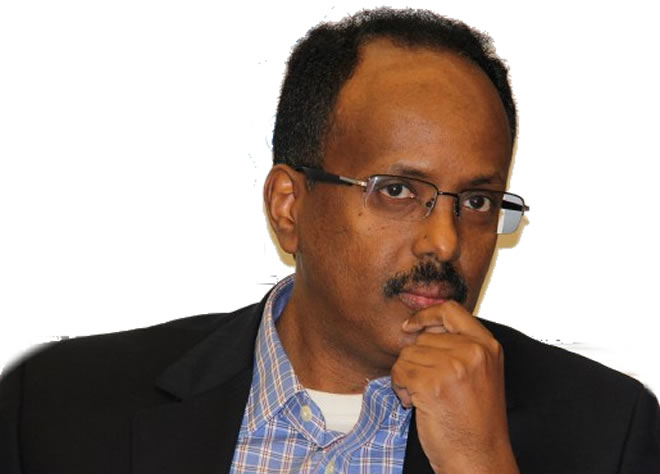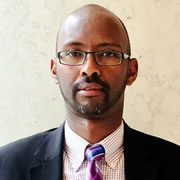“The best lack all conviction, while the worst Are full of passionate intensity.” William Butler Yeats

Somali President Mohamed Abdullahi Farmajo
By: Daud Ed Osman

Friday, May 12, 2017
Historians talk about Marx and Marxism as if relegated to the ash heap of history and those who still hold Marxist views are treated as perverse. However, since the election of President Farmajo I can’t get rid of Marx in my thoughts. I find myself relying Marx advice about Farmajo’s presidency by reading "The Eighteenth Brumaire of Louis Bonaparte" specially his opening paragraph which fascinates me after observing how Presidents Farmajo began his presidency and the contradiction between his government reform rhetoric and the new cabinet dominated by the supporters of the previous regime.
In his opening paragraph, Marx is interpreting the Hegel's famous remark on historical evolution in which he said, "Hegel remarks somewhere that all great world-historic facts and personages appear, so to speak, twice. He forgot to add: the first time as tragedy, the second time as farce." For me, this paragraph grasps the nature of Farmajo's leadership and his claim of reinventing government with the help of thieves of state.
Marx went on by saying "Men make their own history, but they do not make it as they please; they do not make it under self-selected circumstances, but under circumstances existing already, given and transmitted from the past." When President Farmjo declares war against Al-Shabaab or wears military camouflage or brings back the supporters of the previous regime, it is a sign that he is not able to imagine beyond “qabyo.” Even though he is claiming that he is committed to go beyond “qabyo” by reinventing government and fighting corruption. However the public doesn’t expect much from the governments call for comprehensive reforms, instead they see all the things that Hassan Sheikh would do if he would win second term.
During the election President Farmajo did his best to contrast himself with the previous regime and his fellow candidates. He accused President Hassan Sheikh’s government of corruption, nepotism and ineptitude. However, after winning the election and ensuing widespread public rally behind his stunning victory and the motto that captured the public mood “Farmajo ii geeya.” President Farmajo comes to the conclusion that he was wrong about everything he said about the previous government and former President Hassan Sheikh and he can’t achieve his reform agenda without the support of Hassan Sheikh and his close associates.
To many observers, it seems that President Farmajo has secret deal with Hassan Sheikh Mohamud to fulfil his “qabyo” and with the support of his political allies. Strangely, when President Farmajo announced his Prime Minister Hassan Ali Khayre and the Prime Minister Khayre announced his cabinet, the public abandoned their motto and started to question the president’s real motive and why all of a sudden he changed his mind. So far, the president is implying that he can’t be better than Hassan Sheikh; therefore his main goal for the next four years is to accomplish the “qabyo” that President Hassan Sheikh left unfinished.
In conclusion, if the current trend continues, Marx will be my guide in the next four years of Farmajo’s presidency. It will be different case if Farmajo become more self-conscious to his contradictions by reading Karl Marx’s “The Eighteenth Brumaire of Louis Bonaparte.” So he can spare me four years of interpreting his presidency and the impending political decay and instability and the deterioration of security, economy and other social indicators. Reading of “The Eighteenth Brumaire” President Farmajo will augment his imagination by becoming more cognizant of his political capital and the unlimited things he can achieve with his mandate. In other word, it will make him aware that in four years he can achieve more than “qabyo.” He will be able to glimpse more real reform opportunities that the “thieves of state” will not be able to achieve.
Daud Ed Osman
[email protected]